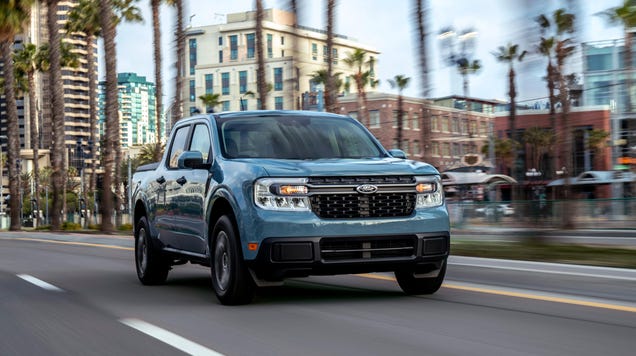
Why Personal Responsibility is Crucial When Buying a Car
Car dealerships have a notorious reputation, and many Americans share a common disdain for them. However, it is essential to prioritize personal responsibility and financial literacy when purchasing a vehicle. Blindly signing a contract can lead to life-altering consequences, as one Ford Maverick owner discovered.
The Ford Maverick Debacle
A Ford Maverick owner recently shared their harrowing experience on Reddit, highlighting the importance of being informed and cautious during the car-buying process. The post detailed how the individual was convinced by a dealer to pay nearly $1,000 more than the agreed-upon price for their vehicle.
Financial Literacy and Avoiding Pitfalls
Stories like the Ford Maverick owner’s serve as a reminder of the significance of financial literacy when dealing with car dealerships. By educating oneself about the car-buying process, understanding negotiation tactics, and thoroughly researching prices, consumers can protect themselves from falling victim to deceptive practices.
Take Control of Your Car Buying Experience
It is crucial to approach car buying with a proactive mindset. Here are some tips to help you navigate the process successfully:
1. Research Extensively
Prior to visiting a dealership, conduct thorough research on the make, model, and pricing of the vehicle you are interested in. This knowledge will empower you during negotiations and prevent you from overpaying.
2. Set a Budget
Establish a realistic budget for your car purchase, taking into account not only the initial cost but also ongoing expenses such as insurance, maintenance, and fuel. Stick to this budget to avoid financial strain.
3. Get Pre-Approved for Financing
Obtaining pre-approved financing from a bank or credit union allows you to have a clear understanding of your budget and helps you avoid falling into the trap of high-interest loans offered by dealerships.
4. Test Drive and Inspect the Vehicle
Before finalizing the purchase, thoroughly inspect the car and take it for a test drive. Look for any potential issues or red flags that may impact its value or performance.
5. Negotiate with Confidence
Approach negotiations with confidence, armed with the knowledge you gained from your research. Be prepared to walk away if the dealer is not willing to meet your terms.
Conclusion
While car dealerships may have a negative reputation, it is essential to take personal responsibility and prioritize financial literacy when buying a car. By being informed, proactive, and assertive during the car-buying process, consumers can protect themselves from potential pitfalls and make confident decisions.


